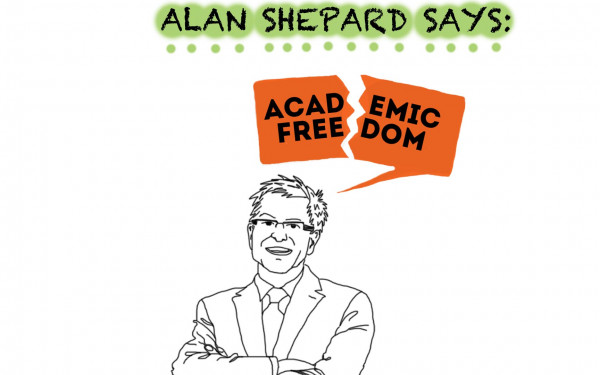Eight Student Strikers Receive Letters of Reprimand From Concordia Tribunal Panel
The verdict is in and the first student-strikers to face a tribunal over last spring’s classroom pickets are receiving the most lenient form of consequence from an independent panel of students and professors.
Eight student respondents to a tribunal on Dec. 2 will receive a letter of reprimand for disrupting a political science class earlier this year under a strike mandate.
The tribunal panel wrote that although the strikes did violate the code of conduct by disrupting university activities, strikers believed there was a mutual understanding the university would not charge them under the code.
After initial complaints were made to Concordia’s Office of Rights and Responsibilities, the university joined the three professors as co-complainants against about 24 students for disrupting university activity. The university has said this was done so it could share information from Campus Security and support its faculty in the process.
“I think the university still needs to make a statement about why they chose to charge students after promising them that they wouldn’t,” said Katie Nelson, one of the eight students at the Dec. 2 tribunal.
According to student politicians, the university said it would not press charges as long as strikes did not compromise safety. The panel wrote in its statement that no one at the tribunal contradicted this argument, and was surprised to see the university act as a co-complainant.
“It’s a wonderful outcome, although it’s not perfect,” Nelson said. “We could have been found ‘not guilty.’”
She added that the university was not clear about its intentions in discussions held before the spring student strikes, and that the tribunal process was abusive.
“I’m really glad we had the outcome we did, but it’s really unfortunate that we went through so much to reach that outcome and that we sacrificed so much for that.”
Nelson also said she is looking into potential legal action to prevent future hearings, including the two tribunals that have yet to be scheduled.
Since the tribunal decisions are considered confidential, Nelson said future tribunals for the remaining students won’t be able to reference this judgement and could face harsher consequences.
“It’s problematic, because it doesn’t keep decisions as controversial or as contentious as this consistent throughout the university,” she said.
Campaign against student tribunals
Concordia students from the various associations, including the undergraduate student union and fine arts student association, shared campaign posters Wednesday night reacting to the verdict and warning Concordia that action will be taken to stop future tribunals.
The campaign, called Concordia Against Tribunals—playfully abbreviated to CATs and featuring a black cat mascot—will officially launch in January according to Marion Miller, the Academic and Advocacy Coordinator for the Concordia Student Union.
“After eight months of upheavals and back and forth, the university spent a lot of resources and time, hiring a mediator and putting together documentation,” Miller said. “‘Was it really worth it?’ I guess is what we’re asking.”
Miller says having a charter of student rights like McGill, Bishop’s and UQAM could clarify what actions can be taken by student unions.
“When workers of Concordia [part-time faculty or full-time faculty] go on strike, they don’t get charged under 29G,” Miller said, referring to the article in the Code of Rights and Responsibilities used in the disruption complaints.
“We think it’ll be an appealing campaign, just because of the cat mascot, but also because cats are fierce and skulking through the night,” she said. “It’s basically saying we’re ready to fight back and protect student rights and we’re going to be fierce cats if you keep infringing on student decisions.”
Four of the students facing charges, including Miller, are on Concordia’s Senate, the highest academic body of the university.
“It’s been this difficult relationship where we’re supposed to be considered as equals and colleagues to better the university’s academic mission,” Miller said. “But at the same time we’re being charged by the same people who are asking for our input on the future of the university.”
All 12 undergraduate senators skipped a 5 à 7 cocktail at President Alan Shepard’s house in Westmount this past Monday, according to Miller. Instead, the students sent a letter explaining their absence from the event, as they were waiting to hear back from the tribunal panel.
“We kind of thought that’s a step too far,” Miller said. “We can’t just go and have a glass of wine in Alan Shepard’s living room, pretending that this situation isn’t happening.”

_900_600_90.jpg)


2_600_375_90_s_c1.jpg)


WEB_600_375_90_s_c1.jpg)